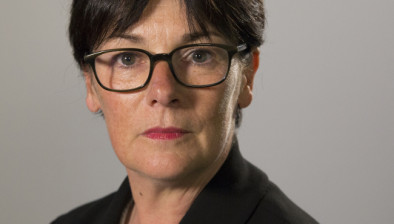New policy for dealing with domestic abuse agreed by Aberdeen City Council

A new policy setting out how Aberdeen City Council’s housing service will deal with incidents of domestic abuse was unanimously agreed at a committee meeting yesterday.
The policy applies to current and prospective tenants and includes actions to increase awareness and training of council staff and allows for perpetrators of domestic abuse to be rehoused away from the family home.
Rehousing perpetrators in this way will provide an alternative to disrupting families by allowing them to stay in their own home preventing homelessness whilst the police and courts take appropriate action against the perpetrator.
Primary prevention of domestic abuse is a key focus of this policy by engaging in wider awareness training, education, challenging attitudes, and action to promote gender equality.
Members of the city council’s operational delivery committee approved the key policy which reflects the aims of the Domestic Abuse (Scotland) Act 2018 that came into force in April 2019 and makes domestic abuse involving a partner or ex-partner, whether physical or emotional or coercive control a criminal offence.
This policy will also reflect the aims of Aberdeen’s Local Outcome Improvement Plan (LOIP) as well as Aberdeen’s Violence Against Women Partnership action plan and strategy.
Councillor Sandra Macdonald, Aberdeen City Council housing spokesperson, said: “The council takes a zero tolerance approach to domestic abuse and it is essential that we promote and recognise the signs of domestic abuse, increase our awareness, and offer as much support as far as possible to all our tenants and prospective tenants from all forms of domestic abuse.
“This new policy will allow families to stay in their own home rather than having to leave it to escape the abuse and will help with ensuring as much stability as possible for them.”
The report to committee said it is believed that domestic abuse is significantly under reported as a crime due to the nature of the offence and behaviours, especially where coercive and controlling behaviour are prevalent.
The number of people fleeing some form of domestic abuse in Aberdeen is higher compared with Scotland on average. For the last comparable year for homeless presentations due to violent or abusive behaviour of 2019/20, Aberdeen had 15.87% and Scotland had 13.1%. The 2020/21 figure for Aberdeen is 13.93%. The incidence of domestic abuse in Aberdeen may be far higher than currently reported with the current COVID lockdown situation making matters potentially worse for those experiencing domestic abuse.
While statistically most of those homeless presentations are by females, it is important to recognise that those from other communities can also suffer from domestic abuse, including those from the LGBTQ community.
The new policy provides senior managers with the power to transfer a domestic abuse perpetrator who is engaging with housing staff. The over-arching aim of the policy is to provide practical help, guidance, and support for those experiencing domestic abuse in all its forms including coercive control.
Consultation on this report has involved third sector organisations including Grampian Woman’s Aid, Cyrenians, GREC, Rape Crisis, Barnardo’s and Advocacy, and city council staff from estate management, housing options, allocations and homelessness.
Communication will be undertaken to ensure that tenants, other service users, employees, third sector organisations and managers are aware of the new policy. A set of procedures, processes and guidance notes will accompany the policy giving fuller details on its application.
Appropriate city council staff including housing officers, case officers, repairs and housing options staff will be provided with comprehensive and targeted training.
Currently there is a Bill being progressed through the Scottish Parliament called Domestic Abuse (Protection) (Scotland) Bill. If this Bill becomes law, it will strengthen the protection available to victims of domestic abuse, through the provision of additional powers including protection notices and orders to protect people from domestic abuse.
These are proposed as domestic abuse protection notices (DAPNs) which can be applied for by the Chief Constable. Part 2 of the Bill, if passed, will allow social landlords to end or transfer a tenancy of a perpetrator of domestic abuse to prevent a victim becoming homeless and enabling them to remain in the family home.









